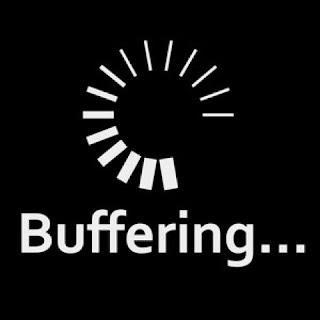Hey guys!!, I am back with an answer to a question that has haunted all of us every once in a while, and that is Why the heck is your wifi so slow? Why is my LAN or ethernet (so to speak) faster than my wifi, regardless of both being from the same service provider. So, today I'll try to tell you the appropriate answer to this question.
So, imagine you just wired your PC to some super fast internet connection which is like every gamer's dream because surely this will be no more lagging on your favorite game. Everyone is eager to experience this kind of speed on their laptop or mobile device, so they buy a fancy looking Wi-Fi router, key in their password and tadaaa!! your speeds aren't even half of what you're getting with the wired connection or LAN. Well unfortunately, Wireless is pretty much always going to be slower than Wired and it's almost as true as the fact that earth is round (pretty much!) and it becomes more and more obvious the faster you try to go even if you spend tons of money on high-end wireless router and Wi-Fi extenders or any other fancy wireless gear.
But wait, we know waves do move faster through the air then electrons do through a wire so why is it that you wifi is slower than your LAN connection? Well let's start with the most obvious -
Wi-Fi on the other hand deploys a hold and wait algorithm, in which it introduces a small delay once the path becomes clear the idea is that since a wireless router can't magically detect a collision in midair this delay reduces the risk of collisions but it also adds to more latency and although much progress in Wi-Fi technology have been made over the years it still resembles much old school communications protocols. For instance, it is half duplex meaning that a Wi-Fi gadgets antenna can only be sending or receiving at any given moment not both now full duplex wireless is in the works but it's still experimental and suffers from its own special kind of interference that results from the antenna trying to deal with both inbound and outbound signals at the same time by contrast Ethernet has been full duplex for quite some time now as it's not difficult to simply put one wire in for transmitting data and another one for receiving it on the same cable.
So all other things practically being the same this should not come as a surprise to most of you that your Wi-Fi connection always seems just a bit slower even if you do walk around with your smartphone and your router stuck with each other (somehow!). That's pretty much it for now, please let me know if you find this useful and also feel free to check out my other posts on the blog, they are really exciting and can help you with more technological stuff. Also, follow us on our social media handles, subscribe to our newsletter to never miss an update! Thanks!
So, imagine you just wired your PC to some super fast internet connection which is like every gamer's dream because surely this will be no more lagging on your favorite game. Everyone is eager to experience this kind of speed on their laptop or mobile device, so they buy a fancy looking Wi-Fi router, key in their password and tadaaa!! your speeds aren't even half of what you're getting with the wired connection or LAN. Well unfortunately, Wireless is pretty much always going to be slower than Wired and it's almost as true as the fact that earth is round (pretty much!) and it becomes more and more obvious the faster you try to go even if you spend tons of money on high-end wireless router and Wi-Fi extenders or any other fancy wireless gear.
But wait, we know waves do move faster through the air then electrons do through a wire so why is it that you wifi is slower than your LAN connection? Well let's start with the most obvious -
- Signal Range
- Collisions (Packet Loss)
Wi-Fi on the other hand deploys a hold and wait algorithm, in which it introduces a small delay once the path becomes clear the idea is that since a wireless router can't magically detect a collision in midair this delay reduces the risk of collisions but it also adds to more latency and although much progress in Wi-Fi technology have been made over the years it still resembles much old school communications protocols. For instance, it is half duplex meaning that a Wi-Fi gadgets antenna can only be sending or receiving at any given moment not both now full duplex wireless is in the works but it's still experimental and suffers from its own special kind of interference that results from the antenna trying to deal with both inbound and outbound signals at the same time by contrast Ethernet has been full duplex for quite some time now as it's not difficult to simply put one wire in for transmitting data and another one for receiving it on the same cable.
So all other things practically being the same this should not come as a surprise to most of you that your Wi-Fi connection always seems just a bit slower even if you do walk around with your smartphone and your router stuck with each other (somehow!). That's pretty much it for now, please let me know if you find this useful and also feel free to check out my other posts on the blog, they are really exciting and can help you with more technological stuff. Also, follow us on our social media handles, subscribe to our newsletter to never miss an update! Thanks!






This is very useful information. Thank you for sharing.
ReplyDeletebigo live
Thank you for sharing the information.
ReplyDeletebigo live pc